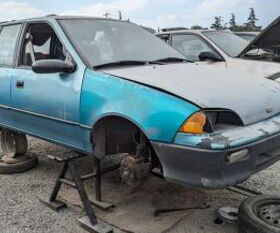Oil is cheap, so Kuwait raised its own gas price to compensate
Green Car Reports
AUGUST 4, 2016
Cheap gasoline is good news for the economies of most countries, but not those that rely on oil exports. The sustained fall in global prices has led oil-producing countries to search for ways to keep their revenues up. In some cases, that means cutting back on cheap gas for their own citizens.












Let's personalize your content